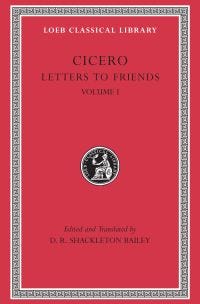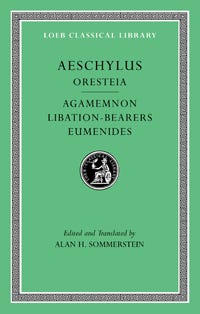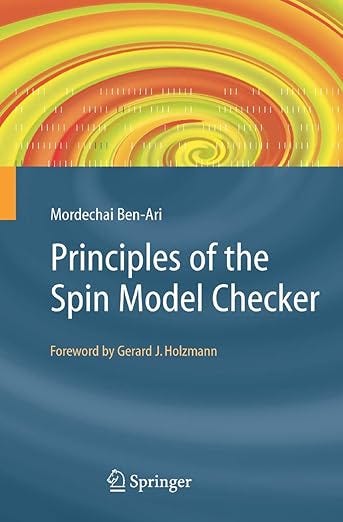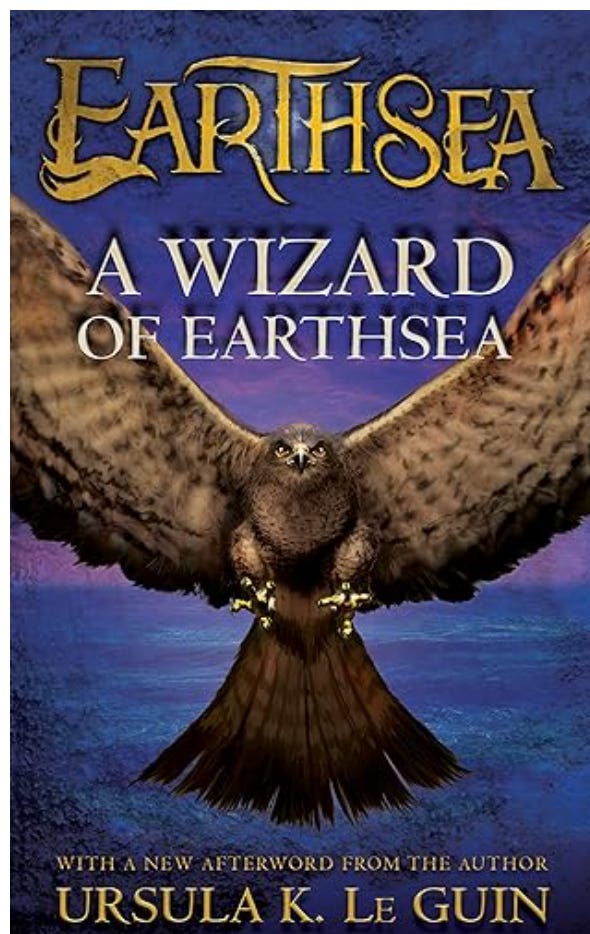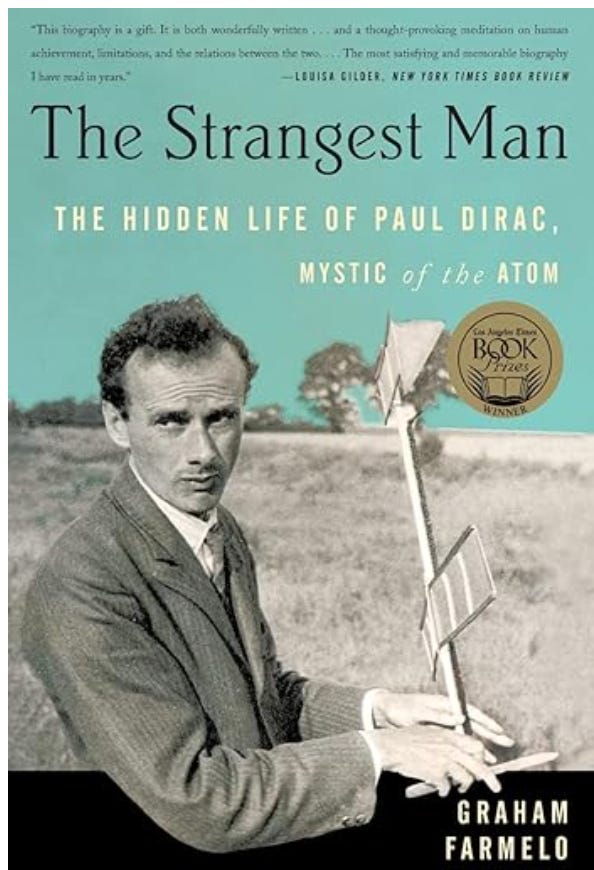Books I Loved Reading in 2024
The Books I Enjoyed Most in 2024
I was able to read several books this year. Here are some books I loved reading in 2024.
Cicero Letter to Friends: Volume 1
Cicero was a Roman statesman, and not only was he an orator of the highest order, but he was also a captivating writer who penned beautiful prose. There are few individuals in history who have written prose more beautiful than his. In fact, he wrote such exquisite Latin that, at one time, education literally meant reading Cicero, Cicero, and some more Cicero.
This book is a collection of letters, translated from Latin to English, that he wrote to friends, family members, and colleagues. Sometimes, he wrote letters because he was concerned about a friend’s health; other times, he wrote to his family because he was worried about their well-being or needed to give them directions. Occasionally, he wrote to friends and colleagues to curry favor for people he knew.
Let me share a few excerpts. Sometimes he would talk about books, as in:
In my command here I have put into practice the whole Education of Cyrus, a work which I read so often that I wore out the book.
What follows is Cicero asking a friend for a favor for another friend:
Now, my dear Paetus, be a friend, and take the whole affair upon yourself, and relieve Fabius of the worry. We need your name and sound judgment, and your personal influence too. Don’t let the brothers get into litigation and become embroiled in discreditable lawsuits. Mato and Pollio are Fabius’ enemies. Briefly, I assure you that I cannot write down in full how much you will oblige me if you put Fabius’ mind at ease. He thinks, and persuades me, that it all depends on you.
Even though I was reading English translations of his letters, his prose remained captivating, even in translation. There are two reasons I like this book. First, it offers insight into the old times, life back then, and how things were. Second, he wrote engaging prose, sometimes even lyrical. Among countless examples, here are a few phrases I enjoyed:
Please rest assured that my solicitude for your credit increases every day, though your own integrity and clemency have so enhanced it that any addition seems impossible.
Another one:
If he proves himself worthy of his forbears, as I expect and hope he will, some part of the credit will go to you. If he stumbles, the damage will be entirely his, not yours at all.
And this one has a nice ring to it:
If you do what is best for your health, you will best comply with my wishes. So think it over in that clever head of yours. I miss you, but I love you. Loving you, I want to see you fit and well; missing you, I want to see you as soon as possible. The former, there, must come first. So make it your chief concern to get well. Of your countless services to me this will be the one I shall most appreciate.
How beautifully he weaves simple words to convey emotion.
In the truest sense of the word, he was a man of letters. Writing prose like his isn’t something an ordinary individual can easily emulate.
Mathematical Logic for Computer Science by Ben-Ari
I wanted to brush up on logic for computer science, and this book came highly recommended by someone I trust. It did not disappoint. It’s a technical book, heavy on theory, so I had to read it slowly, ensuring I absorbed everything as I went along.
Some books aren’t easy to read and aren’t rewarding either, while others aren’t easy to read yet are rewarding. This one wasn’t easy, but it was certainly a rewarding experience for me. The best part of the book was its use of a first-principles approach.
The book covers propositional logic, deductive systems such as Gentzen (I even blogged about it) and Hilbert, Binary Decision Diagrams, SAT solvers, First-Order Logic, Temporal Logic, verification of sequential programs, and verification of concurrent programs. The last three topics intrigued me the most, and I liked the way the content was presented so much that I bought another book by the same author and read it.
Philosophy as a Way of Life by Pierre Hadot
I came across this book accidentally, but I’m so glad I did. Pierre Hadot was a French philosopher who could not only philosophize but also write simply—an ability not common among top-tier philosophers, if I may say so with respect.
This work explores themes on how to use philosophy to live better lives. What better purpose could philosophy serve than this?
Hadot believed that the purpose of ancient philosophy was to transform souls, which is why philosophical teaching was primarily given in oral form. Nothing stirs the soul like a good spoken word, and the written part was, for the most part, a complement to this oral teaching. The oral tradition and dialogue were at the center of philosophy. While it was important to present the solution, it was even more important to show the “path traversed together in arriving at this solution.”
This book offered insights that were outside my sphere of knowledge. For one, if you want to truly understand why Marcus Aurelius wrote his Meditations the way he did, then this book is for you. You learn why he sought to reform rather than inform. You also discover the framework he used to write down his meditations. Further, you learn about Epictetus and his philosophy. For instance, one should not content oneself with philosophical discourses or texts, but strive to live a good life. As Epictetus once said, “our only occupation should be the cure of ourselves.” The essence of philosophy, then, is to produce good actions, to live virtuously and not viciously, to pursue truth and not ignorance.
He also talks about spiritual exercises in this book, which is both interesting and worth a post in its own right.
Philosophy shouldn’t be confined to specific institutions or individuals. Instead, we all should be able to use it to refine ourselves, to dialogue with others and with oneself, to examine our conscience, and to be masters of ourselves. The idea is not for anyone to “satisfy himself with discourse, with the conceptual architecture that he has constructed, without putting into question his own life.” Hadot calls this a perpetual danger of philosophy, where a philosopher takes refuge in the “reassuring universe of concepts and of discourse instead of going beyond discourse in order to take upon himself the risk of the radical transformation of himself.”
I feel Pierre Hadot’s aim in writing this book was to make philosophy accessible to common men and women, to help us use philosophy to live better lives. I believe he succeeded. There is much in this book that can serve us well.
Aeschylus was not just a soldier but also the father of Greek tragedy and a figure whose influence still echoes through his works. He won first prizes often at the Dionysia (an ancient Greek festival that included theatrical performances of tragedies and comedies). Oresteia, a winner at the Dionysia, was a trilogy that explored the themes of justice, vengeance, and the evolution of societal order.
There is much wisdom in the trilogy. This following famous quote about “learning by suffering” is in the first play:
Zeus, who set mortals on the road
to understanding, who made
“learning by suffering” into an effective law.
There drips before the heart, instead of sleep,
The misery of pain recalled: good sense comes to men.
His thoughts on human psychology and the way he crafted his stories are why I liked this book. I have to admit, there is a lot in it that I need to absorb. I’ll surely be re-reading this one sometime soon. It’s one of those books that one ought to read multiple times in life because I’m certain that every time we read it, it will offer something new.
Principles of the SPIN Model Checker by Ben-Ari
There are technical books that are thick and heavy yet offer little, and then there are books that are short yet offer insight and ignite your interest and curiosity even further. This book gave me both insight and a deeper curiosity about the subject.
This book introduces the SPIN model checker and exposes the reader to the nuances of verifying programs using SPIN. A nice feature of the book is how it explains concepts using thoughtfully developed, freely available tools (such as jSpin) that the author created for pedagogical purposes.
It’s a demanding book, but the content was interesting. The book presents details about concurrency, temporal logic, non-determinism, advanced SPIN topics, and even case studies. I’ve already written a few blog posts about the topics I explored while reading this book, and I plan to write more. Overall, it’s a good book. I’m sure I’ll revisit the latter half again.
Born Standing Up by Steve Martin
It’s a nice, short, and moving memoir by the comedian and actor Steve Martin. The book details his early working days at shops and clubs, his relationships, and eventually his rise to fame. He shared his struggles, his failures, long hours of practice, his reflections to refine his craft, and his efforts to find his own unique voice as a comedian. Any memoir that only talks about successes and never discusses struggles, rejections, or weaknesses is suspect. This one is not. What I like about his writing is that it feels candid and, at times, funny.
From reading the book, it’s clear that recognition for one’s work takes time. What you can’t control is how and when you get recognition. What you can control is how hard you work and persevere. He firmly understood what he could control and focused on that. His was a long journey, full of obstacles, but he never gave up. He kept refining his craft, kept working, kept improving, and finally, he earned the recognition he much deserved.
Reading this book reinforces the idea that success is nine times patience times effort times reflection times some luck.
Less Than One by Joseph Brodsky
Joseph Brodsky was a poet, an essayist, and a Nobel Prize winner. This book is a collection of essays, and some of them are quite profound. One of his essays on Dostoevsky is particularly insightful; it left such an impression on me that I reflected on it and wrote an essay of my own.
He is one of those writers who frequently shares wisdom about literature or the human condition in his writing. You don’t stop reading him because he keeps you so engaged by offering insights on the topic at hand.
He’s also one of those writers who gives you unexpected angles on familiar things. For instance, his essay on Dostoevsky offers subtle insights into why Dostoevsky’s work is immortal.
One difference between masters and beginners is that masters have explored and mastered details that beginners may not even notice. Similarly, another takeaway from this book is understanding how experienced literary connoisseurs interpret and analyze literary works. The way he untangles and interprets some literary pieces, and the depth and detail he explores, isn’t just insightful—it’s something that someone like me couldn’t even notice at first. He has a whole essay on W.H. Auden’s poem, and the way he delves into it is simply fascinating.
All in all, it’s a good book with some thought-provoking writing.
A Wizard of Earthsea by Ursula Le Guin
I had never read anything by Ursula Le Guin, but then I came across some excerpts of her work online, and I thought I should give her a try. I was also going through a phase in my life where I believed reading more fiction would help power up my imagination. I picked this book up, and I liked it.
On the surface, it’s about wizards and magic, but there’s more to it. Every now and then, Ursula Le Guin sprinkles in some wisdom.
One reason I like this book is how the plot folds and then unfolds. Another reason is that you come across phrases that make you pause and think, like:
It is very hard for evil to take hold of the unconsenting soul.
Or this:
To light a candle is to cast a shadow...
Or this:
I had forgotten how much light there is in the world, till you gave it back to me.
I enjoyed the book, and I plan on exploring and reading more of her work.
Rabindranath Tagore was a Bengali poet, writer, composer, philosopher, social reformer, and Nobel Prize winner. I admire philosophers who not only talk but also put their words into action to better the world. Tagore not only left behind a remarkable body of work but also tried to make the world a better place through his actions—such as opening a school, which now boasts a list of distinguished alumni.
This book contains his essays and plays. It’s a big volume, and I bought it because it includes his most notable works, although, for now, I was mainly interested in his essays. Some of his essays are thought-provoking. His reflections on education, nationalism, and other topics are not only stirring but also showcase literary brilliance. The man could write.
Here is one of his quotes I particularly like:
The one who plants trees, knowing that he will never sit in their shade, has at least started to understand the meaning of life.
The Strangest Man by Graham Farmelo
This is a good biography of arguably the most brilliant scientist, Paul Dirac, famous for co-inventing the most revolutionary theory in the last hundred years or so—the theory of quantum mechanics. Paul Dirac was a man of very few words, hardworking, and a brilliant scientist who took pride in the beauty of mathematics.
Sometimes I believe an appalling childhood is a precondition for genius; Dirac had one. He once said, “I never had a childhood.” But thankfully, he received a superb education. He was not known to talk much, even during his childhood. The only time he spoke was when he politely corrected the errors of his teachers. Dirac believed he was a geometrical thinker, probably due to his excellent technical drawing skills learned at school. Eventually, he earned a PhD at Cambridge, and as a scientist, he never looked back. There is so much in this book that I should probably write about in a separate review sometime.
Dirac was also quite a character, and making small talk with him wasn’t easy. He once responded to the comment, “It’s a bit rainy, isn’t it?” by walking to the window, returning to his seat, and stating, “It is not now raining.” He was very careful with his speech; he once said, “I was always taught not to start a sentence until I knew how to finish it.”
His contributions to the field of physics are seminal. He definitely led a life worth living. I found this an engaging biography and thoroughly enjoyed reading it.
The argumentative Indian by Amartya Sen
I had not read any of Amartya Sen’s work before this book. Mr. Sen is a notable scholar and a winner of the Nobel Prize in Economics. It’s stimulating work as well as easy to read.
Although parts of South Asia are not commonly known to have an argumentative gene, Amartya Sen convincingly shows that Indian history is deeply rooted in an argumentative tradition. He masterfully weaves evidence and tales to make his point. There is much I learned that I didn’t know, even though I’m from South Asia (which was a bit embarrassing). For instance, I learned how poets from the working classes questioned social divisions and the barriers of disparate religions. He also cites historical evidence showing how the argumentative tradition was firmly rooted in India’s history. For example, Ashoka’s remarkable interest in the rules of discussion in the third century BC is evident in one of his edicts: “A person must not do reverence to his own sect or disparage the beliefs of another without reason.” In parts of South Asia today, different sects still find it difficult to sit and settle their differences even when the state intervenes, yet a few centuries ago, the king Akbar arranged interfaith dialogues.
Sen also thoroughly presents a convincing case for how India’s intellectual accomplishments were marred by biases associated with its colonial past. His critique of James Mill’s (father of John Stuart Mill) work on Indian history is particularly insightful.
This book also introduced me to Tagore and his ideas, such as his views on education and his critique of patriotism and nationalism.
Additionally, the book discusses the accomplished Indian filmmaker Satyajit Ray (who was awarded an Oscar for lifetime of cinematic excellence). After reading about him, I watched some of his movies, which are not only fascinating but also thought-provoking. Simple storytelling, yet stories that make you think.
Overall, this book illuminated some corners of my brain—it was educational.
Human, All Too Human by Nietzsche
Nietzsche wasn’t trained as a philosopher; he was trained as a philologist, and he had a way with words. He wrote penetrating thoughts about culture, society, morals, arts, and politics in this multifaceted work. You may disagree with Nietzsche on ideas he considers first-rate, but you cannot disregard him as a second-rate writer.
Nietzsche uses an aphoristic style, which Wikipedia defines as: “An aphorism is a concise, terse, laconic, or memorable expression of a general truth or principle.” Why did he use that style? Perhaps because of his severe and disabling health problems. Or maybe he prized the aphoristic style because he believed “brevity is the soul of wit.” Some of the aphorisms in the book indeed show sharp wit.
One might speculate that his aphoristic style could lead to incoherence of thought in this work. I don’t find that to be the case. In several places, I found him laying the foundations for some of his notable ideas, such as will to power. One cannot be incoherent and simultaneously lay out influential ideas in philosophy.
One major theme I took away from this book is to bring anything I believe under much stronger scrutiny; only such scrutiny can bring us closer to the truth. The subtitle of the book is A Book for Free Spirits. What does he mean by a free spirit? It’s someone able to liberate themselves from the chains that hinder them, to scrupulously scrutinize ideas, and to show determination to undertake tasks requiring excellence, strength, and courage to break away from conventional values, traditions, and societal expectations.
In Nietzsche’s own words, a free spirit feels like a wanderer, rejects dependence on things like honors, money, or official positions, and is thankful for the struggles and uncertainties of life. A free spirit is curious and daring, works tirelessly, uses resources carefully, is inventive and flexible, and has a love of solitude.
On being bound by tradition, in one of his aphorisms he says:
The less men are bound by tradition, the greater is the fermentation of motivations within them, and the greater, in consequence, their outward restlessness, their mingling together with one another, their polyphony of endeavors.
On habits in drawing conclusions, he observes:
The commonest erroneous conclusions drawn by mankind are these: a thing exists, therefore it has a right to. Here the conclusion is from the capacity to live to the fitness to live, from the fitness to live to the right to live. Then: an opinion makes happy, therefore it is a true opinion, its effect is good, therefore it itself is good and true.
In the book, one can also see Nietzsche developing and laying the foundations for his ideas, such as will to power. For example:
The reason the man of power is grateful is this. His benefactor has, through the help he has given him, as it were, laid hands on the sphere of the man of power and intruded into it: now, by way of requital, the man of power in turn lays hands on the sphere of his benefactor through the act of gratitude. It is a milder form of revenge. If he did not have the compensation of gratitude, the man of power would have appeared unpowerful and thenceforth counted as such. That is why every community of the good, that is to say originally the powerful, places gratitude among its first duties. Swift suggested that men are grateful in the same degree as they are revengeful.
On intellect and morality, he writes:
One has to have a good memory if one is to keep a promise. One has to have a powerful imagination if one is to feel sympathy. So closely is morality tied to the quality of the intellect.
There is an interesting chapter titled From the Souls of Artists and Writers—interesting because art and writing interest me. On the sudden occurrence of inspiration versus gradual work leading to excellence, he states:
Artists have an interest in the existence of a belief in the sudden occurrence of ideas, in so-called inspirations; as though the idea of a work of art, a poem, the basic proposition of a philosophy flashed down from heaven like a ray of divine grace. In reality, the imagination of a good artist or thinker is productive continually, of good, mediocre and bad things, but this power of judgement, sharpened and practised to the highest degree, rejects, selects, knots together; as we can now see from Beethoven’s notebooks how the most glorious melodies were put together gradually and as it were culled out of many beginnings.
Nietzsche also shares a recipe for becoming a good novelist:
The recipe for becoming a good novelist, for example, is easy to give, but to carry it out presupposes qualities one is accustomed to overlook when one says, ‘I do not have enough talent.’ One has only to make a hundred or so sketches for novels, none longer than two pages but of such distinctness that every word in them is necessary; one should write down anecdotes each day until one has learned how to give them the most pregnant and effective form; one should be tireless in collecting and describing human types and characters; one should above all relate things to others and listen to others relate, keeping one’s eyes and ears open for the effect produced on those present; one should travel like a landscape painter or costume designer; one should excerpt for oneself out of the individual sciences everything that will produce an artistic effect when it is well described; one should, finally, reflect on the motives of human actions, disdain no signpost to instruction about them, and be a collector of these things by day and night. One should continue in this many-sided exercise some ten years: what is then created in the workshop, however, will be fit to go out into the world. What, however, do most people do? They begin, not with the parts, but with the whole. Perhaps they chance to strike a right note, excite attention and from then on strike worse and worse notes, for good, natural reasons.
On why thinkers write badly, Nietzsche remarks:
Most thinkers write badly because they communicate to us not only their thoughts but also the thinking of their thoughts.
And on who is the best author, he states:
The best author will be he who is ashamed to become a writer.
Nietzsche also has interesting thoughts favoring idleness:
Scholars are ashamed of otium (leisure). But there is something noble about leisure and idleness. If idleness really is the beginning of all vice, then it is at any rate in the closest proximity to all virtue; the idle man is always a better man than the active. But when I speak of leisure and idleness, you do not think I am alluding to you, do you, you sluggers?
And in another aphorism about leisure, he notes:
The man who lies ill in bed sometimes discovers that what he is ill from is usually his office, his business, or his society, and that through them he has lost all circumspection with regard to himself: he acquires this wisdom from the leisure to which his illness has compelled him.
This is the only book from which I want to share the most. Right now, as I write this, just like a child who wants to show all his favorite toys to his friends, I want to share all my favorite thoughts from this book. I have to admit, I have never read a philosopher who had more penetrating thoughts in a book. Some of his ideas hit you like a thunderbolt. His writing is penetrating, and he makes his point in as few words as possible. He means business. He should be read.
If you enjoyed this essay, or if it struck a chord with you, I would be honored if you shared it with someone who might appreciate it. Writing gives my life meaning—it’s a pursuit I hold close—and your support, whether through a subscription, a one-time donation, or a recommendation, motivates me to keep going. For this, I am deeply grateful. Thank you for being part of this journey.



